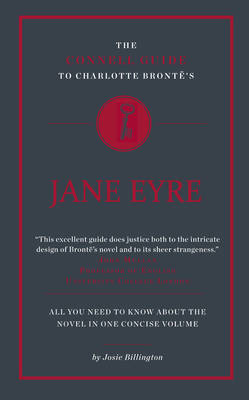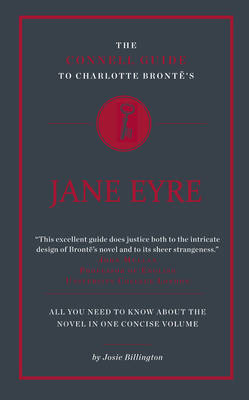
- Afhalen na 1 uur in een winkel met voorraad
- Gratis thuislevering in België vanaf € 30
- Ruim aanbod met 7 miljoen producten
- Afhalen na 1 uur in een winkel met voorraad
- Gratis thuislevering in België vanaf € 30
- Ruim aanbod met 7 miljoen producten
Zoeken
€ 12,95
+ 25 punten
Omschrijving
Jane Eyre, published on 16th October 1847, was an instant popular success. More than 150 years later, it still powerfully affects its readers with all the charge of a new-minted work. It is easy to forget, now, how shocking it was to its mid-19th century readers. Virtually every early reviewer felt obliged either to condemn or defend its impropriety. As Josie Billington reminds us in this compelling guide, the most savage reviews denounced the "coarseness" of language, the "unfeminine" laxity of moral tone, and the "dereliction of decorum" which made its hero cruel, brutal, yet attractively interesting, while permitting its plain, poor, single heroine to live under same roof as the man she loved. What caused most outrage, perhaps, was the demonstrable rebellious anger in the heroine's "unregenerate and undisciplined spirit", her being a passionate law unto herself. "Never was there a better hater. Every page burns with moral Jacobinism," wrote an early critic. As the poet Matthew Arnold was to say of Brontë's "disagreeable" final novel, Villette, "the writer's mind contains nothing but hunger, rebellion and rage". In this book Josie Billington looks at the passion and indeed rage which filled Bronte, and shows us that, though sometimes criticised for melodrama, this is a novel of great intellectual seriousness, moral integrity and depth of feeling. She quotes George Henry Lewis: "It is soul speaking to soul; it is an utterance from the depths of a struggling, suffering, much-enduring spirit.
Specificaties
Betrokkenen
- Auteur(s):
- Uitgeverij:
Inhoud
- Aantal bladzijden:
- 144
- Taal:
- Engels
- Reeks:
Eigenschappen
- Productcode (EAN):
- 9781907776175
- Verschijningsdatum:
- 1/09/2018
- Uitvoering:
- Paperback
- Formaat:
- Trade paperback (VS)
- Afmetingen:
- 109 mm x 175 mm
- Gewicht:
- 181 g

Alleen bij Standaard Boekhandel
+ 25 punten op je klantenkaart van Standaard Boekhandel
Beoordelingen
We publiceren alleen reviews die voldoen aan de voorwaarden voor reviews. Bekijk onze voorwaarden voor reviews.











